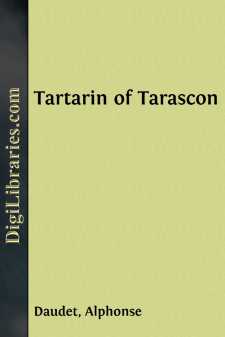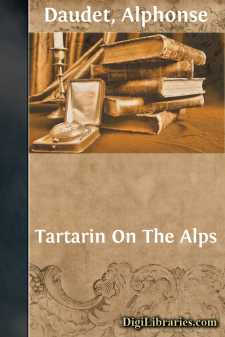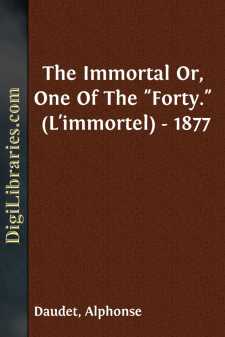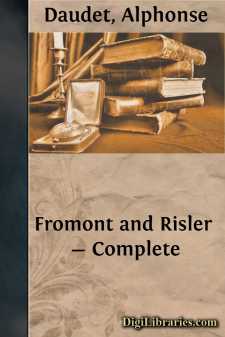Categories
- Antiques & Collectibles 13
- Architecture 36
- Art 48
- Bibles 22
- Biography & Autobiography 813
- Body, Mind & Spirit 142
- Business & Economics 28
- Children's Books 17
- Children's Fiction 14
- Computers 4
- Cooking 94
- Crafts & Hobbies 4
- Drama 346
- Education 46
- Family & Relationships 57
- Fiction 11829
- Games 19
- Gardening 17
- Health & Fitness 34
- History 1377
- House & Home 1
- Humor 147
- Juvenile Fiction 1873
- Juvenile Nonfiction 202
- Language Arts & Disciplines 88
- Law 16
- Literary Collections 686
- Literary Criticism 179
- Mathematics 13
- Medical 41
- Music 40
- Nature 179
- Non-Classifiable 1768
- Performing Arts 7
- Periodicals 1453
- Philosophy 64
- Photography 2
- Poetry 896
- Political Science 203
- Psychology 42
- Reference 154
- Religion 513
- Science 126
- Self-Help 84
- Social Science 81
- Sports & Recreation 34
- Study Aids 3
- Technology & Engineering 59
- Transportation 23
- Travel 463
- True Crime 29
Le Petit Chose (part 1) Histoire d'un Enfant
by: Alphonse Daudet
Description:
Excerpt
INTRODUCTION
Alphonse Daudet was born at Nîmes on May 13, 1840. The Daudets were of lowly origin. Alphonse’s grandfather, a simple peasant, had in 1789 settled at Nîmes as a weaver. His business prospered so much that he died leaving a small fortune; Vincent Daudet, his fourth son, and a young man of great ambition, was determined to rise out of the class in which he was born and acquire for himself and family a high social status. In 1830 he married, greatly against the wishes of her parents, Adeline Reynaud, whose father owned the largest silk manufactory in the town.
His affairs were fairly flourishing when he was suddenly ruined by the Revolution of 1848. Unable to meet his liabilities, he sold his business and removed to Lyons with his wife and children. He was, however, anxious that his sons, of whom Alphonse was the third, should have the best education his scanty means would allow, and Alphonse and his elder brother Ernest—the “mère Jacques” of Le Petit Chose and his lifelong companion—were first sent to the monastic school of St. Pierre, and then to the Lyons Lycée.
Young Alphonse, who from his birth had been rather delicate, was not a model boy. He loved to play truant, and it was only through his brother Ernest, who, to get him out of many a scrape, wrote notes to his teacher signed in his father’s name, that he escaped punishment. But he showed signs of great promise. He learned his lessons in half the time that his school-fellows did, was always at the top of his class, and was gifted with a marvellous power of observation. He composed several poems—amongst others La Vierge à la Crèche and Les Petits Enfants,—also a novel, all of which were declared by his master to have been amazing productions for a boy of his age.
But Fortune did not smile on the Daudet family at Lyons any more than at Nîmes. After ten years of hard and bitter struggles, the home was broken up. M. Daudet became traveller for a firm of wine-merchants in the North, his wife and daughter remained in the South. Ernest—who had on leaving school acted as bookkeeper to his father, then as a receiver of pledges in a pawnbroker’s shop, and lastly as a clerk in a forwarding office—went to Paris to try his fortune in the world of letters, whilst Alphonse was sent as an usher to a college at Alais, for his father was unable to pay the fees for his final school examination.
The year that he spent at Alais was the unhappiest in his life. His small stature, his youth—he was now only fifteen years old—his “gauche” appearance, were not calculated to inspire the boys with any respect for him. They played him all sorts of tricks, and the masters refused to uphold his authority. Often, in order to escape his tormentors, he would rush up to his bed-room and there give vent to his despair by shedding floods of tears, lying awake at night and biting the bedclothes to choke his sobs. Yet, brave philosopher that he was, Le Petit Chose never lost heart. The dream of his life was to retrieve the family fortunes, a dream which one day was to be fully realized. At last, however, at the end of his tether, he wrote to Ernest telling him all his troubles, and great was his joy when he received a letter back, asking him to come at once to Paris....









